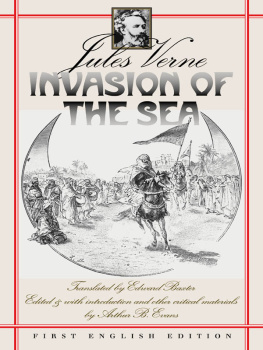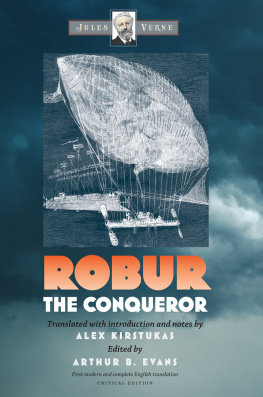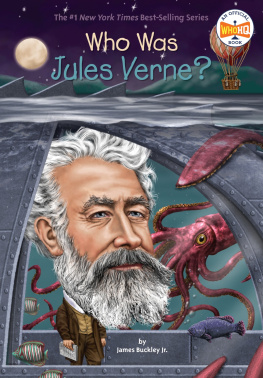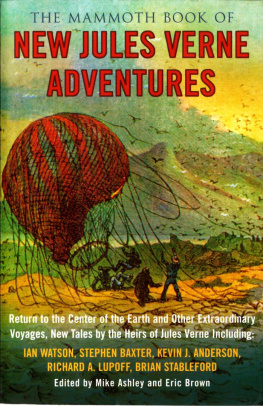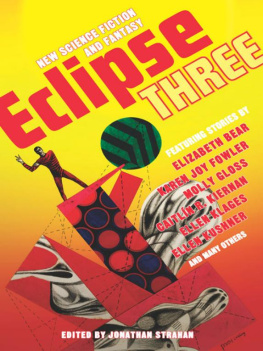Jules Verne - A Fantasy of Dr Ox
Here you can read online Jules Verne - A Fantasy of Dr Ox full text of the book (entire story) in english for free. Download pdf and epub, get meaning, cover and reviews about this ebook. year: 2019, publisher: Alma Books, genre: Detective and thriller. Description of the work, (preface) as well as reviews are available. Best literature library LitArk.com created for fans of good reading and offers a wide selection of genres:
Romance novel
Science fiction
Adventure
Detective
Science
History
Home and family
Prose
Art
Politics
Computer
Non-fiction
Religion
Business
Children
Humor
Choose a favorite category and find really read worthwhile books. Enjoy immersion in the world of imagination, feel the emotions of the characters or learn something new for yourself, make an fascinating discovery.

- Book:A Fantasy of Dr Ox
- Author:
- Publisher:Alma Books
- Genre:
- Year:2019
- Rating:4 / 5
- Favourites:Add to favourites
- Your mark:
- 80
- 1
- 2
- 3
- 4
- 5
A Fantasy of Dr Ox: summary, description and annotation
We offer to read an annotation, description, summary or preface (depends on what the author of the book "A Fantasy of Dr Ox" wrote himself). If you haven't found the necessary information about the book — write in the comments, we will try to find it.
In the somnolent Flemish town of Quiquendone disagreements are unheard of, courtships might last a decade and not a ripple of activity can be seen at all. But when the mysterious Dr Ox is tasked with providing lighting for the town, strange things begin to happen: animals become aggressive, fruits grow huge in size, plants climb more vigorously and tempers flare up, leading the once phlegmatic townsfolk to bitter confrontations and pushing them to the brink of all-out violence.Verne, the acclaimed author of immortal tales of adventure and early science fiction, can be seen here in a different light, regaling readers of all ages with a light-hearted satire that, in its warnings about the dangers of scientific experimentation, has a clear and troubling resonance with our times.
A Fantasy of Dr Ox — read online for free the complete book (whole text) full work
Below is the text of the book, divided by pages. System saving the place of the last page read, allows you to conveniently read the book "A Fantasy of Dr Ox" online for free, without having to search again every time where you left off. Put a bookmark, and you can go to the page where you finished reading at any time.
Font size:
Interval:
Bookmark:
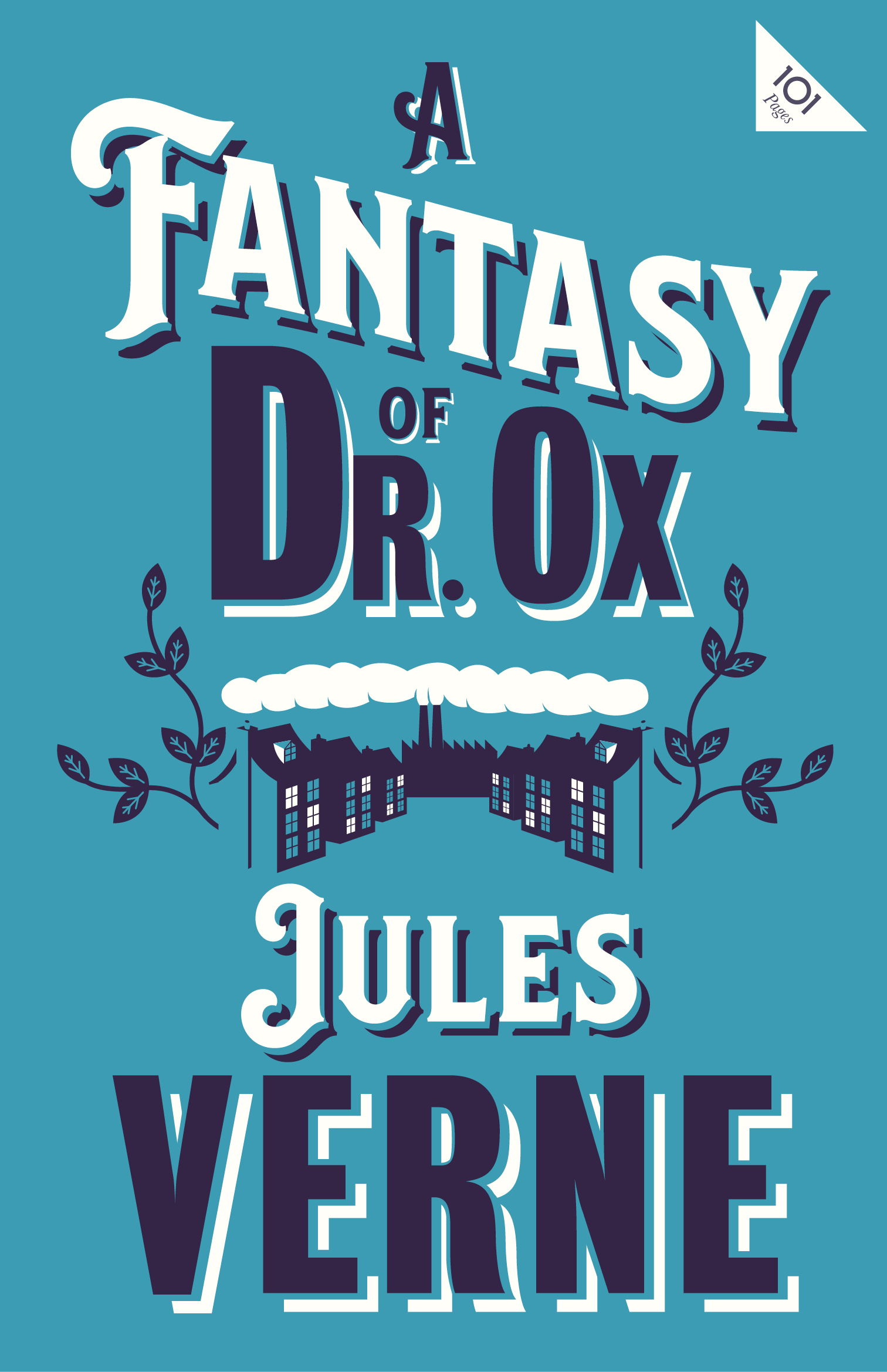

A Fantasy of Dr Ox
Jules Verne
Translated by Andrew Brown

ALMA CLASSICS
alma classics
an imprint of
alma books ltd
Castle Yard
Richmond
Surrey TW10 6TF
United Kingdom
.uk
A Fantasy of Dr Ox first published in French as Une fantaisie du docteur Ox in 1872
This translation first published by Hesperus Press Limited in 2003. This revised translation first published by Alma Classics in 2019
Translation, Introduction and Notes Andrew Brown, 2003, 2019
Cover design nathanburtondesign.com
isbn : 978-1-84749-797-0
All rights reserved. No part of this publication may be reproduced, stored in or introduced into a retrieval system, or transmitted, in any form or by any means (electronic, mechanical, photocopying, recording or otherwise), without the prior written permission of the publisher. This book is sold subject to the condition that it shall not be resold, lent, hired out or otherwise circulated without the express prior consent of the publisher.
Contents
Introduction
The great conductor Otto Klemperer is famous, or infamous, for the increasingly slow tempo of his performances of the classics of Western music. Peter Heyworth once asked him, when he was a Grand Old Man of conducting, how he could tell what the right speed for a piece of music was. One feels it, replied Klemperer. I mean, it was characteristic of Mahlers conducting that one felt that the tempo could not be otherwise. When Heyworth went on to ask whether he thought his own tempos had become slower, Klemperer demurred, and became a little defensive when Heyworth started quoting particular examples from his recordings that did indeed suggest that he had slowed down over the years. Accounts of these recordings frequently contrast their slowness with the quicker versions of other conductors Toscanini, for instance, whom Klemperer on occasion found much too fast, and who often seemed the opposite of Klemperer speeding up to a mad dash as he got older. And there are even more notorious cases of slow conductors, such as Reginald Goodall, whose Wagner performances are distinguished by, to put it politely, an extreme broadness of tempo. In some of the repertoire conducted by Klemperer, the question of historically informed performance (agreeably abbreviated to HIP) has come to the fore in the last twenty years: the listener can now contrast the version of Bachs Mass in B Minor conducted by the hare-like Franz Brueggen with that of the tortoise-like old man Klemperer, though the question as to whose speeds are more authentic (i.e. closer to those imagined by Bach) still provokes lively scholarly debate.
What is the right speed for a piece of music? Perhaps there is no right speed perhaps no one speed is right all the time. And the different participants (performers and listeners) in music may experience the same piece at different tempos. (Sir Thomas Beecham famously asked the dancers at the beginning of a ballet rehearsal: What shall it be today? Too fast or too slow?)
What is the right speed at which to live ones life? Should you be a tortoise or a hare? (Its true that, in the fable, the tortoise wins the race but is it worth it?) Vernes A Fantasy of Dr Ox is a short, slight piece, economical in style, light-hearted in manner, told with brio and at a brisk allegro vivace , yet, as so often with Verne, the apparent superficiality of manner touches on themes whose slow echoes continue to resonate in the mind long after one has read the story. The inhabitants of the Flemish city of Quiquendone lead lives of extraordinary slowness and tranquillity. Their heartbeats rarely rise above fifty to the minute. Their taste in music runs to performances of lavish leisureliness. Klemperer at his most tortoise-like would have struck them as dashing through the music in indecent haste, as if anxious that he might miss closing time at the musicians bar. And they would have run Toscanini out of town (or presumably accompanied him gravely to the Oudenaarde Gate and put him on a slow train to Brussels).
All this changes with the arrival of the scientist Dr Ox and his assistant Ygne. Despite the reference to bovine disease at one moment in the text, the reader soon realizes that the story is not about the hygiene of oxen, of course but Verne teases the reader: has he or she been quicker on the uptake than the initially stolid Quiquendonians? Understanding the story too quickly might spoil the rhythm of suspense and disclosure that is part of the charm of the narrative its comic timing. One of the effects of Oxs experiment is to speed up the tempo of the locals to the point where they can shake off their sluggishness (Flemings are phlegmatic) and become more choleric (Flanders is a place of flame or at least this is what the increasingly heated Niklausse claims in Chapter 5, though etymologically the name Flanders appears to come from a Germanic word meaning a flooded place). One of the first indices of this change is indeed in the pace at which they like their music and, here, the comic-opera potentials of the story immediately become apparent. There was a musical adaptation by Offenbach, but Verne supposedly didnt much care for this; perhaps he would have preferred the second, more recent version by Gavin Bryars, Dr Oxs Experiment , with its libretto by Blake Morrison, first produced by Atom Egoyan.
Ox is to some extent one of Vernes mad scientists: an outsider figure who comes to town, uses its inhabitants as his guinea pigs, creates havoc and then vanishes with a bang that is more Mephistophelean than Faustian. His assistant Ygne is a little hesitant about the experiment (closer in temperament to the Quiquendonians, whose whole life is one long hesitation): he registers a doubt about the hasty amorality of his scientific and modernizing master. And yet it is not certain that the story is so very scientific, despite having at times been acclaimed as an early (and still rare) example of comic science fiction (which tends, especially from Mary Shelleys Frankenstein onwards, to be doom-laden and apocalyptic). It is true that, as Blake Morrison has pointed out, Verne might have been interested in the experiments of Paul Bert, a French physiologist who exposed animals to a treatment similar to that inflicted on the Quiquendonians by Dr Ox. It is also true that Vernes story was written in 1871, at a time when naturalism was increasingly setting the agenda for French fiction. Zolas preface to the second edition of his Thrse Raquin (1868) disavows any moral intent and, at the same time, any emotional empathy with (or disgust at) his sexually enthralled protagonists Thrse and her lover Laurent. They are simply the products of the inexorable laws of their physical natures, and any remorse they feel for killing off Thrses husband Camille is itself a mere organic disorder. Circumstance and environment (atmosphere, one might say, to bring out the parallel with Quiquendone) determine the characters without their being able to do anything about it. Hippolyte Taine stated that vice and virtue are products like vitriol and sugar a view that strongly influenced Zola. But Zola was not a scientist, or at least his work is not exhausted by the truth content or otherwise of the scientific themes it touches on. Verne, too, may or may not believe that behaviour we normally consider to be good or bad is explicable by purely material and physiological causes. But that is not the point. He is not out to prove anything: the Hetzel version of his story included a few words distancing himself from his eponymous heros theory: we have every right not to accept it, and for our part we reject it from every point of view , despite his whimsical experiment [etc.]. Whereas the British musical adaptation bears the title Dr Oxs Experiment , the storys original title places the emphasis on the fantasy (or whim, or act of imagination): it is not a real experiment, but a thought experiment, and perhaps not even that a fable, or, quite simply, a short story, to be enjoyed for the many trains of thought it starts without letting any of them reach a destination. Before we realize what is really causing the speed-ups and slow-downs of the Quiquendonians, it is entertaining to think of them as merely suffering from an acute form of bipolar affective disorder, swinging from mania to depression within minutes, like a man who leaves his girlfriend full of intense and starry-eyed love, only to decide by the time he reaches home that he never wants to see her again, and phoning her up to tell her so. Dr Oxs experiment makes the Quiquendonians live more intensely a blessing or a curse? They will die younger, but live more; instead of vegetating, they will burn; instead of living in peace and brotherly love, like the Swiss, according to Harry Lime in The Third Man , they will have internecine wars and manic productivity like Renaissance Italians. (One of the blessings or, if you prefer, curses of Dr Oxs experiment is that the Quiquendonians start to get passionate about politics.) The idea of a small town in Flanders suddenly deciding to go to war with an equally small town over a trivial centuries-old trespass by a cow is partly Swiftian (Lilliput versus Brobdingnag: not go to work on an egg, but go to war over an egg) and partly reminiscent of an Ealing Comedy ( Passport to Pimlico , perhaps, in which an intensely local patriotism is likewise inflamed by a long-forgotten deed), or of Chestertons The Napoleon of Notting Hill. But skirmishes over a tiny patch of land can lead to long and bitter wars, and Flanders, home of the still life, the late-medieval form of the vita contemplativa known as the devotio moderna, and clearly characterized by Verne as a place of bovine contentment, was also always the cockpit of Europe. Look on any map and you will see how close Quiquendone is to Ypres and Mons: forty years after Vernes story was written, the fields of Flanders were inflamed by a conflict that combined, with unprecedented savagery, the speed and violence of modern technology and the passion of territorial disputes on the one hand, and the monumental slowness of trench warfare on the other, with the gentle landscapes of Memling being torn apart by rampaging hordes from Bosch or the Dulle Griet of Brueghel. One particular form of new technology might have attracted the interest of Vernes protagonist: the use of chemical weapons. Oh What a Lovely War or, as Dr Ox might have put it, What a Gas.
Font size:
Interval:
Bookmark:
Similar books «A Fantasy of Dr Ox»
Look at similar books to A Fantasy of Dr Ox. We have selected literature similar in name and meaning in the hope of providing readers with more options to find new, interesting, not yet read works.
Discussion, reviews of the book A Fantasy of Dr Ox and just readers' own opinions. Leave your comments, write what you think about the work, its meaning or the main characters. Specify what exactly you liked and what you didn't like, and why you think so.



